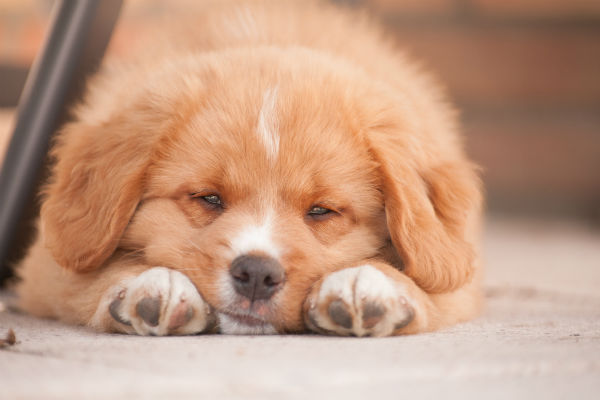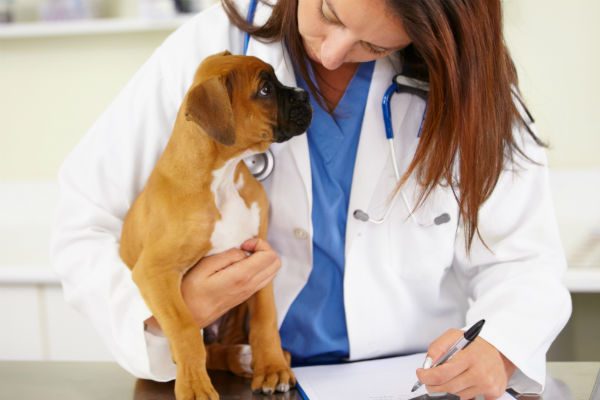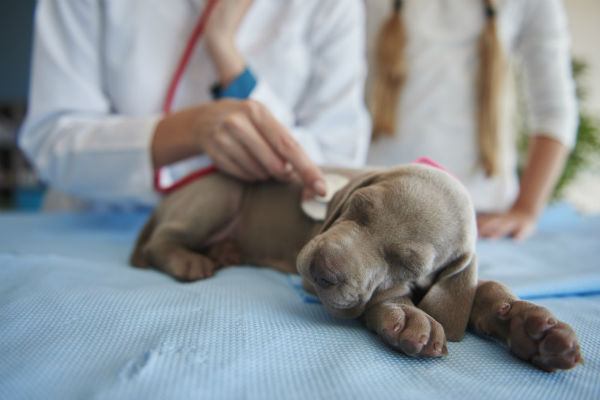How Do Dogs Get Parvo? All You Need to Know
Posted by Manish Kumar Bharti on
The last thing any new puppy owner or dog breeder wants to hear is a diagnosis of parvo. Parvo in puppies is unfortunately a common disease with deadly consequences, which is why it is important for anyone dealing with puppies on a regular basis to be aware of the symptoms of parvo and what to do about it.
What Is Parvo?
Parvo in puppies is caused by the canine parvovirus. This virus is highly contagious and spreads through direct contact with an infected dog or by indirect contact with a contaminated object. Your puppy is exposed to the parvovirus every time he sniffs, licks, or consumes infected feces. Indirect transmission occurs when a person who has recently been exposed to an infected dog touches your puppy, or when a puppy encounters a contaminated object, like a food or water bowl, collars and leashes, and the hands and clothing of people who handle infected dogs.
The Merck Veterinary Manual classifies the virus as a disease of the stomach and small intestines, as this is where the virus does the most damage. The virus prefers to infect the small intestine, where it destroys cells, impairs absorption, and disrupts the gut barrier. Parvo in puppies also affects the bone marrow and lymphopoietic tissues, and in some cases can also affect the heart.
Why Do Puppies Get Parvo?
Puppies ages six weeks to six months are the most susceptible to parvo. Puppies younger than six-weeks-old still retain some of their mother’s antibodies, assuming that the dam received her full series of parvo vaccinations. Puppies are vaccinated against parvo at approximately 6, 8, and 12 weeks of age. They are vulnerable to the disease until they have received all three shots in their vaccination series, which means owners need to take extra precaution during this time to prevent their puppies from contracting the virus. Puppies should receive a dose of canine parvovirus vaccine between 14 and 16 weeks of age, regardless of how many doses they received earlier, to develop adequate protection.

The severity of parvo cases varies. The stress of weaning can lead to a more severe case of parvo n puppies, as stress weakens the immune system. A combination of parvo and a secondary infection or a parasite can also lead to a more severe case of parvo in puppies.
To top it off, certain breeds of dogs are at an increased risk of parvo:
- Rottweilers
- Doberman Pinschers
- American Straffordshire Terriers
- English Springer Spaniels
- German Sheperds
- Labs
How Long Are Puppies With Parvo Contagious?
Puppies and adult dogs with parvo start shedding the virus within 4-to-5 days of exposure. Unfortunately for conscientious owners, this time period does not always coincide with the first parvo symptoms, which means dogs can be contagious before owners even realize that they are sick. Puppies with parvo continue to shed the virus for up to 10 days after a clinical recovery, so be sure to keep any puppies recovering from parvo away from unvaccinated and partially vaccinated dogs.
Outside of your dog, the virus can survive indoors for at least one month, and outdoors it can survive for many months and even a year under the right conditions. Talk to your vet about the best way to remove the parvovirus from your home environment or kennels.
Symptoms of Parvo in Puppies

A puppy with parvo is a very sick dog. The sooner you catch the early signs of the virus in puppies, the sooner you can get your dog to the vet. Since parvo is common in young puppies, you should call your vet any time your puppy is feeling under the weather, but you should also be aware of the specific symptoms of parvo in puppies:
- Bloody diarrhea
- Vomiting
- Fever
- Lethargy
- Anorexia
- Weight loss
- Weakness
- Dehydration
- Depression
All of these symptoms are serious by themselves and could be a sign of parvo or another serious illness. You should contact your vet immediately if you suspect your puppy has parvo, and be sure to notify the vet’s staff ahead of time of your suspicions and your puppy’s symptoms, so that they can take the appropriate quarantine procedures to prevent your puppy from infecting other dogs.
Treating Parvo in Puppies
Your vet will diagnose parvo based on clinical signs and through blood work. She may also run a test called an ELISA to search for virus antigens in your dog’s feces and will perform additional diagnostic testing as needed.
There is no cure for parvo. Your vet will offer your puppy supportive care over the course of the illness, treating symptoms such as vomiting, diarrhea, and dehydration, and making sure that your puppy gets adequate nutrition.
Serious viruses like parvo weaken a puppy’s immune system and lower his white blood cell count, reducing his ability to fight off secondary bacterial infections. The damage the virus does to a dog’s intestinal wall increases the likelihood of a secondary infection. Your vet may put your puppy on an antibiotic medication to combat these bacterial infections and will monitor your puppy carefully for additional complications.
Serious viruses like parvo weaken a puppy’s immune system and lower his white blood cell count, reducing his ability to fight off secondary bacterial infections. The damage the virus does to a dog’s intestinal wall increases the likelihood of a secondary infection. Your vet may put your puppy on an antibiotic medication to combat these bacterial infections and will monitor your puppy carefully for additional complications.

Parvo is a potentially fatal disease. The survival rate of dogs treated by a veterinarian is 68 to 92 percent, and most puppies that survive the first three-to-four days make a complete recovery. Recovery times vary depending on the severity of the case, but it usually takes approximately one week for puppies to recover from parvo.
Your veterinarian will walk you through the appropriate treatment steps for your puppy’s case and will advise you about any precautionary steps you need to take for any other puppies and dogs in your household.
Preventing Parvo in Puppies
Parvo is a preventable virus. All puppies and adult dogs should receive their parvo vaccinations, and it is especially important that bitches used for breeding receive a full course of parvo vaccinations, as the puppies will depend on the mother’s antibodies for the first few weeks of life.
You should not allow puppies to come into contact with unvaccinated dogs until they have received all of their parvo vaccines. Make sure all dogs in your household are vaccinated, and be very careful when socializing your puppy. Dog parks and other places where dogs congregate are potential sources of parvo, so plan on socializing your puppy in a less public environment.
Socialization and training are very important for puppies. You can safely socialize your puppy with fully vaccinated adult dogs in an environment like your home. Puppy classes, boarding facilities, and doggy daycare facilities usually require proof of vaccination for all of their participants, but it is a good idea to talk to your vet about the appropriate level of caution.

Parvo is a serious and highly contagious disease. Understanding how parvo spreads, the symptoms of parvo, the treatment options for parvo, and the best ways to prevent parvo in puppies will help you keep your puppy safe. For more information about parvo, talk to your vet.
Note: This article is not intended as a substitute for veterinary care. If you suspect your dog has parvo, contact your veterinarian immediately.
Article credit - American Kennel Club
Share this post
- 0 comment
- Tags: Parvo disease
